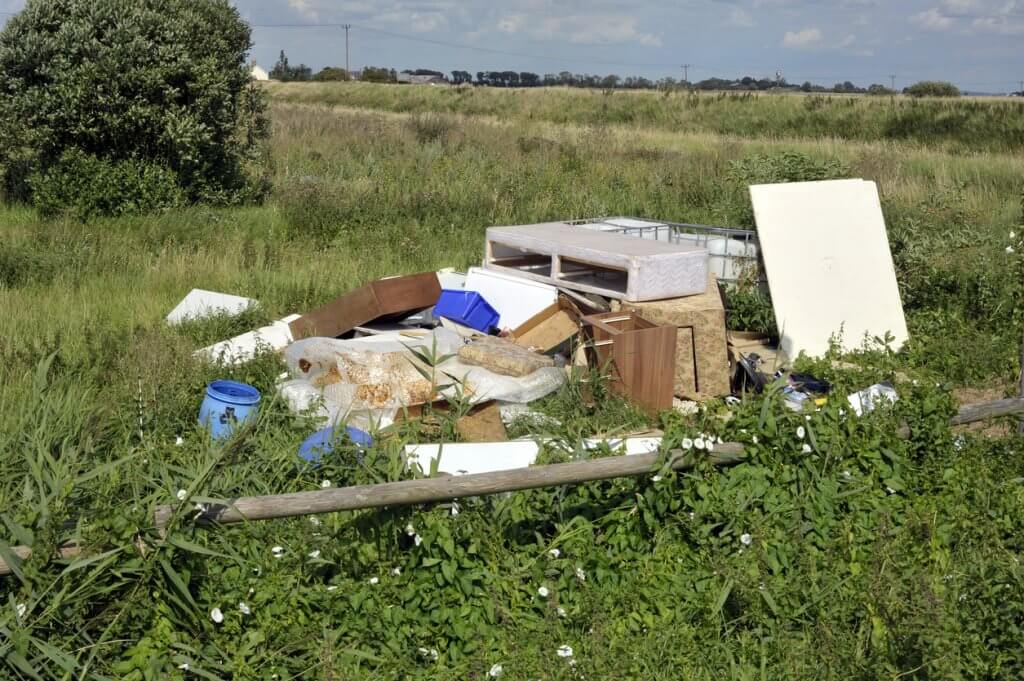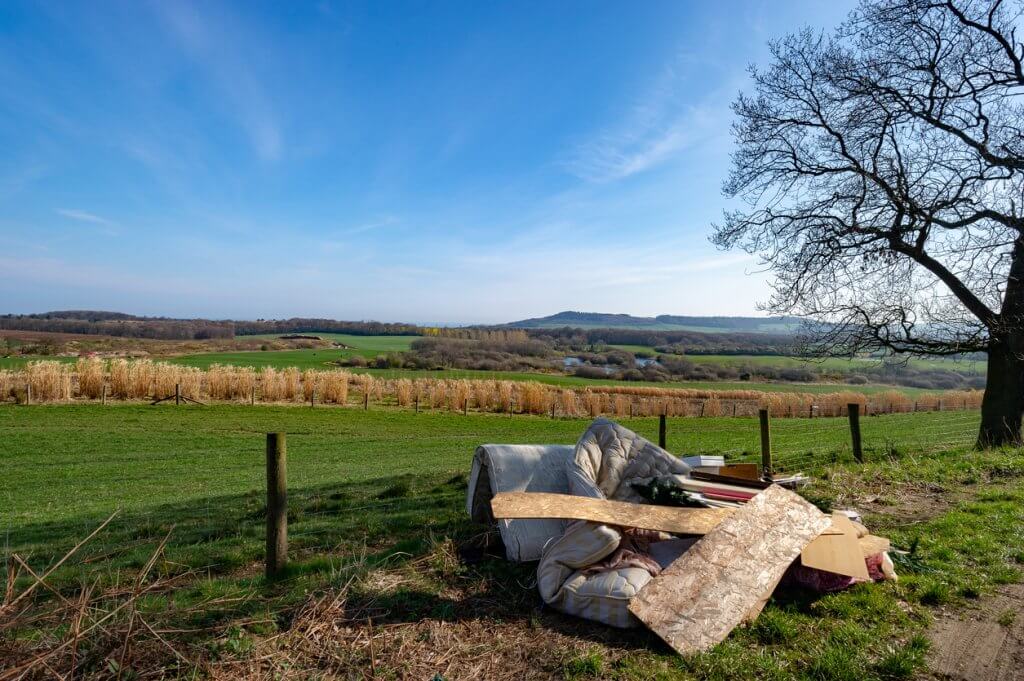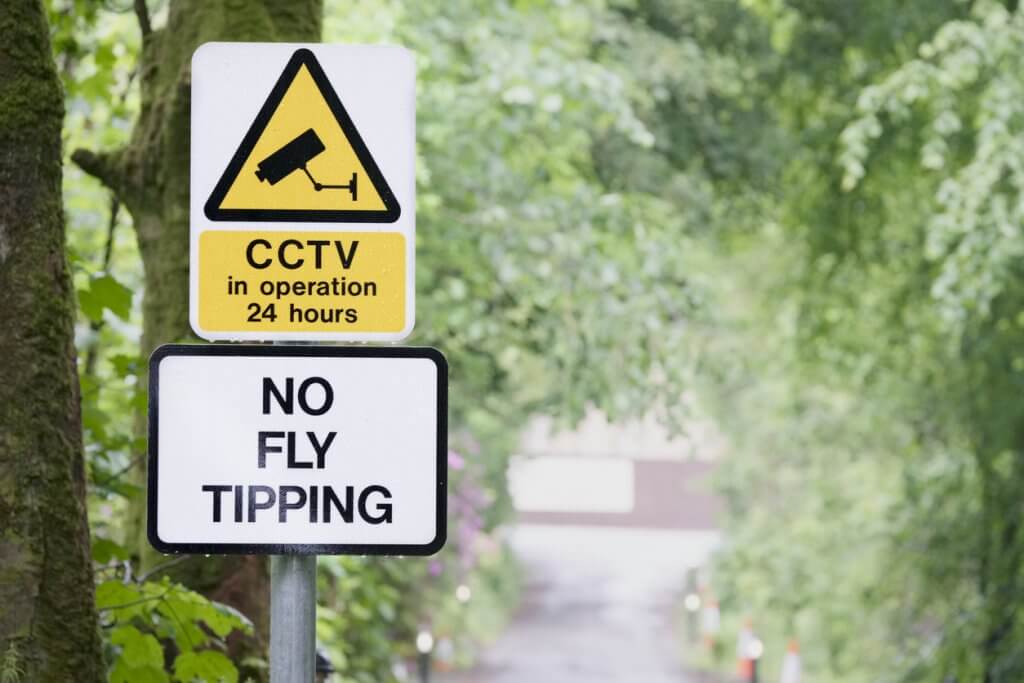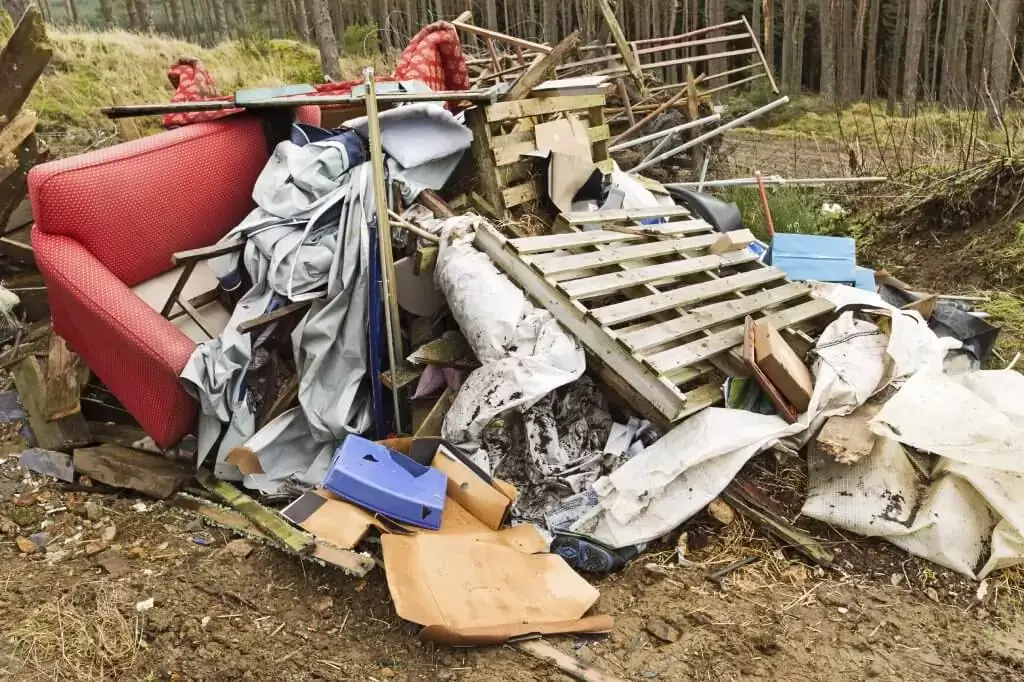Posted on 7th February 2023 by Hintons
There were 976,000 fly tipping incidents in 2019-2020, a 2% rise on the year prior. The rise of COVID-19 and the lockdowns that followed are partly to blame, as many waste facilities were temporarily closed for periods throughout the year.
This year’s figures are expected to be high once again as councils, businesses and landowners continue to tackle the problem of illegal fly tipping.
In this month’s article, we discuss who is responsible for fly tipping, including the process to be taken by local councils and landowners that have fallen victim to fly tipping.
What are the responsibilities of the council?
The local council has a responsibility to ensure their local area is free of illegal dumping. If someone has become a victim of fly tipping, they will typically contact their local council, who must then take the appropriate action both to clear the waste and to report the incident.
Councils must:
Assess the incident
Gather information about:
- The circumstances of the incident, including the date, time and whether there were any witnesses
- Land type, such as whether it was on public or private land
- The location of the incident
- The amount and type of waste dumped
- Its harmfulness, such as whether the waste dumped was toxic and whether it could be a hazard to other people or animals
Remove the waste
It is the duty of the local council to remove the waste if it is fly tipped on relevant land. However, the council may be required to contact the Environment Agency if the waste is:
- More than 20 tonnes
- More than 75 litres of potentially hazardous waste
- Possibly linked to criminal activity
Carry out an investigation
An investigation will help to determine whether further action is required. The investigation should focus on:
- The seriousness of the offence
- The potential costs
- The likelihood of prosecution
A further, full investigation may be required if the incident is determined to be a serious crime.
Issue a penalty or notice
Local councils must decide whether to prosecute and what the suitable punishment should be. Local authorities can:
- Issue fixed penalty notices
- Prosecute using the Environmental Protection Act or Environmental Permitting Regulations
What are the responsibilities of a private landowner
If fly tipping has occurred on your private land and you have no evidence for who the culprit was, you will be responsible for dealing with the waste.
You must:
Record the incident
This includes recording:
- A rough estimate of the time it was dumped
- The types of materials dumped
- The location of the incident
- Any witnesses to the incident
- The size of the waste area
Contact your local authority or the Environment Agency
Feed your report to your local authority so that they can take the next steps. This should be able to advise you on how your waste will be cleared.
If you feel it to be necessary, contact the police
Fly tipping is a crime, so you may wish to report it to your local police by calling 101.
What happens if you get caught fly tipping?
Fly tipping is a crime. If you get caught fly tipping, you could be prosecuted and fined up to £5000.
How to avoid fly tipping
If someone fly tips on your property and you have no evidence of the culprit, you will be responsible for removing the waste. There are steps you can take to reduce the chances of this happening.
Speak to you neighbours
- Ask your neighbours to keep an eye on your skip for any suspicious behaviour
Place your skip on your driveway or garden
- Keep it out of a public area to deter fly tippers. Many tippers won’t travel onto private property to fly tip for fear of getting caught
Cover the skip when it is not being used
- Use an enclosed skip or use something as a lid for the skip. Most fly tippers won’t go to the effort of removing the cover for fear of getting caught
Install cameras or lights
- Installing cameras or lights will deter fly tippers from dumping waste on your property. Should anyone proceed to fly tip, you’ll have the evidence on the camera
Waste Collection for Fly Tipping
The waste will need to be collected so it can be safely disposed of or held to be used as evidence. In most cases, this will be done by a waste collection expert, such as the team at Hinton’s Waste.
Hinton’s offers swift collection and disposal of household or commercial waste from your property. We collect a wide variety of waste, including wood, cardboard, glass, metals, plastic and more.
We aim to recycle as much of the waste as possible at our own dedicated recycling facility
If you’re a landlord, we offer fuss-free waste collection for your property. Whether it’s from fly tipping or messy tenants, we’ll ensure a fuss-free collection to keep your property tidy.
At Hinton’s, we offer skips and a range of waste management services to customers across Croydon and Sutton. Whether you require hazardous waste disposal or construction waste recycling, our team works with diligence, professionalism and care to ensure that all your waste is removed safely. We also offer a range of skips, suitable for domestic and commercial projects. Check out our skip size guide to find the perfect skip for you.
Contact our team to find out more about any of our services.




